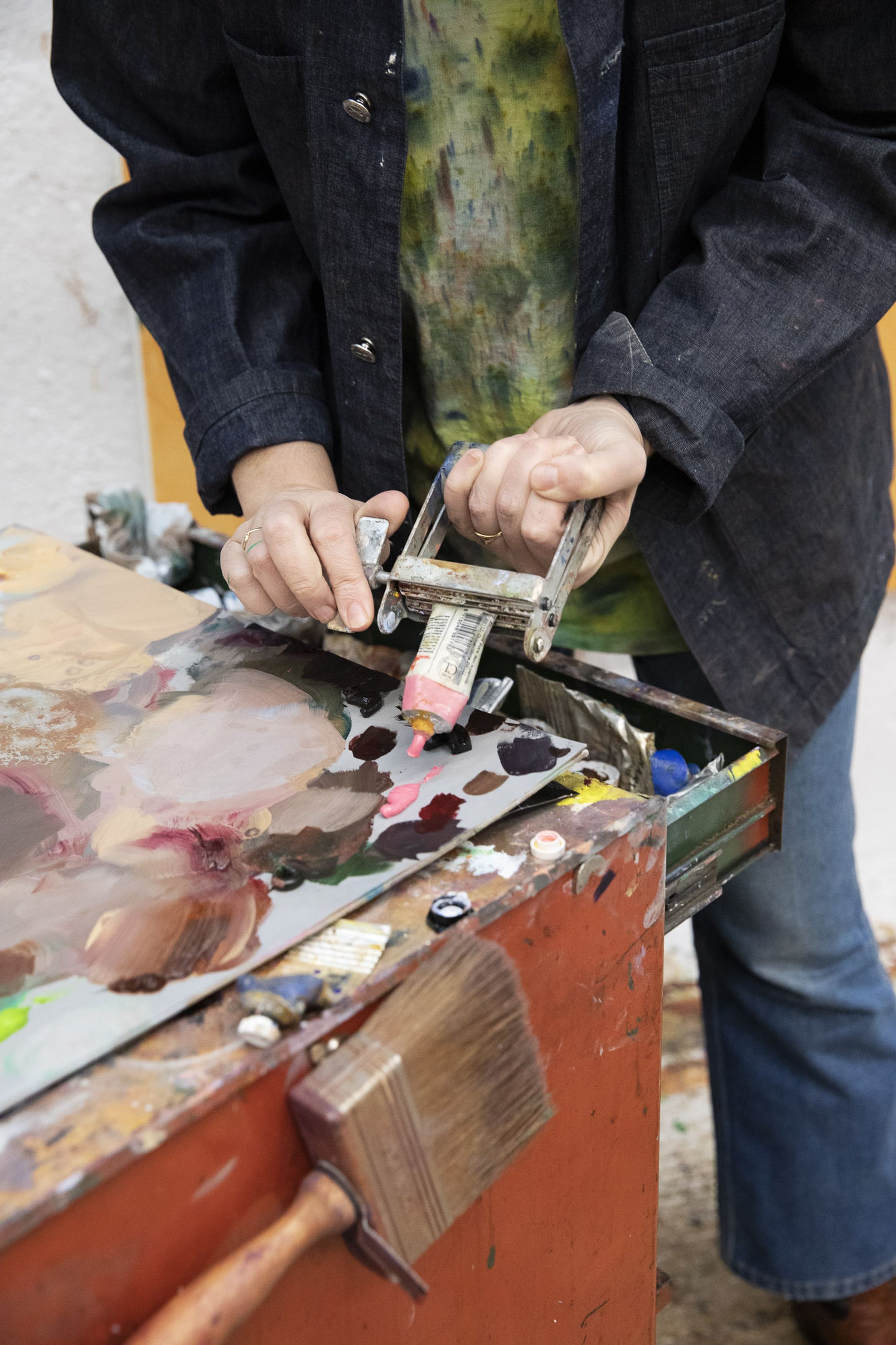“A common misunderstanding is that my work is about intimacy. It's just as much about a sort of constructed intimacy or consuming what we think of as other people's intimate moments, which maybe aren't intimate at all.”
The pleasure and politics of looking
What does it mean to look at another person? And how does that change when you are a woman looking at the woman you love? Tenderness, love and care are painted into the soft pink hues of Jenna Gribbon’s oil paintings. Body parts dominate huge canvases. She almost exclusively paints her wife, musician Mackenzie Scott. She describes their relationship as “reciprocal musedom.” They find a new queer meaning of the word ‘muse’ – one built on consent and freedom rather than directional power.
Gribbon wants to change the dynamic between the viewer and the subject. Her smaller works are ‘documentary pa...
Bio
Jenna Gribbon (she/her) was born in Knoxville, Tennessee, 1978. She currently lives and works in Brooklyn, New York.
Early life
Gribbon was fascinated with art from an early age. Since art education at her school was very limited, she fell in love with it through books and on television.
In their words
“I’m always interested in the way that people are seen versus the way that they think they are or the way they want to be”


